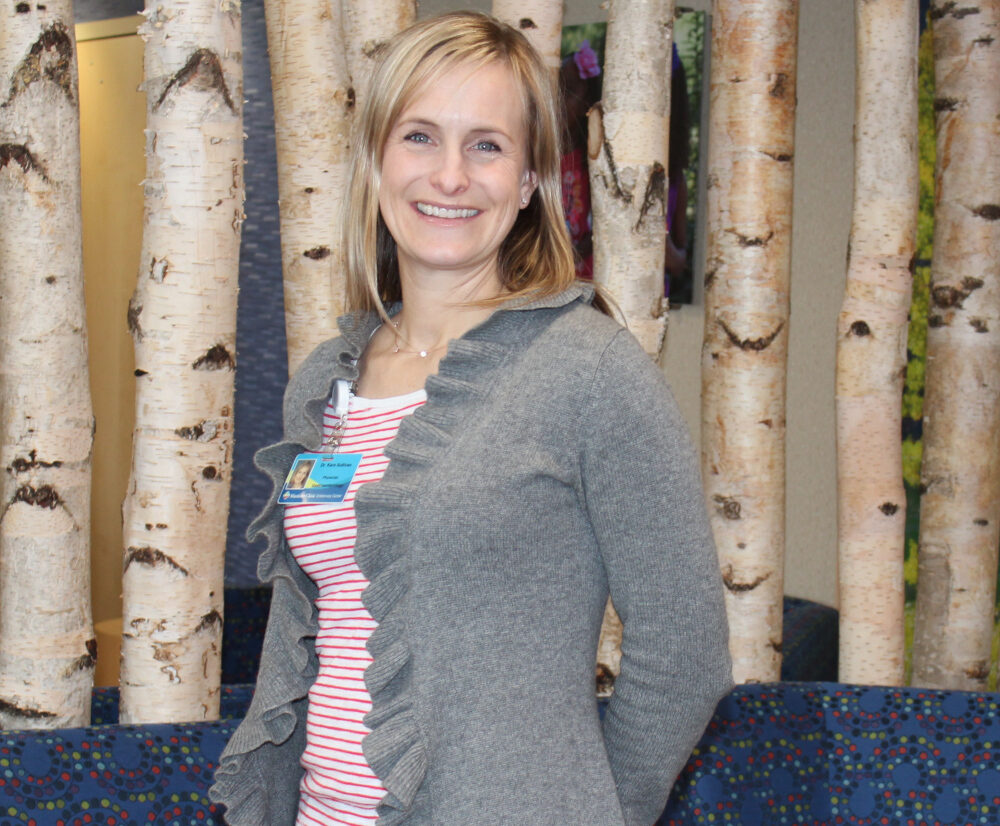Let’s Talk About Poop
March 20, 2019 by Kara Sullivan, MD

When your little one is born, you spend the first days of life making sure she is eating, sleeping and pooping! You breathe a sigh of relief when you get through potty training and accidents.
Sometimes though, children have pooping problems and accidents when they get older. In fact, 25-30 percent of us have pooping issues. Many parents feel very alone when their older children are having accidents. Nobody talks about it on Facebook or among friends.
Really, pooping is just another bodily function. I spend one afternoon a week at the Mankato Clinic Children’s Health Center. Chronic constipation is one of the most common problems. What’s surprising is chronic constipation often results in fecal leakage and “poopy pants.”
Here’s how. It’s common for children to “hold it” instead of going when they first feel the urge. This leads to constipation and children may pass a large, hard bowel movement. When this happens repeatedly, the rectum gets stretched out. Children lose the urge to poop. When poop first enters the colon it is liquid so when it meets the hard poop in the colon, the liquid poop slides past. Children don’t even feel it and cannot control it.
The accidents are very embarrassing and stressful for school-aged children. It can also be stressful and frustrating for parents and siblings.
Some children have stomachaches and their bellies may be hard to the touch from the backed-up waste. They may feel crabby, bloated and upset about their accidents. I tell parents that we are all part of a team and together we can successfully treat this issue.
Here’s how. We need to reset the colon and the brain to restore normal function. Treatment starts by cleaning out the bowel with laxatives and a clear liquid diet. Next parents use a simple chart to track their child’s stool. Treatment includes mild laxatives and sitting on the toilet after breakfast and dinner. Children go to school and resume normal activity. Sometimes, we work with school nurses to schedule medications and bathroom time at school.
Diet changes like reducing dairy products, drinking more water and eating more fruit and fiber may be encouraged.
Treatment can take six to 12 months so patience and follow-up are essential!
I work with parents and children to understand the condition. We watch the video “The Poo in You” which explains it in a simple way. When it comes to soiling, parents can help younger children and older children may clean themselves. I advise parents to be consistent and provide gentle support.
Now, let’s talk about resetting the brain. The brain and gut are highly connected. In fact, your stomach and intestines have their own nervous system and contain more receptors for brain chemicals than the brain itself!
To help children retrain their brains, we offer behavioral health services at Children’s Health Center. Clinical social worker Crystal Dubbelde, MSW, LICSW, is available to help kiddos make changes. Crystal and I work closely with our patients’ primary care providers.
If you notice constipation or accidents are interfering with your child’s daily life, talk to your primary care provider or contact the Mankato Clinic Children’s Health Center. By treating the condition early, you can help your child get back on track sooner.